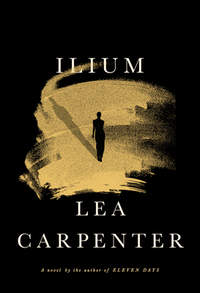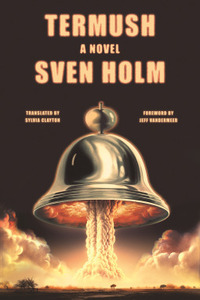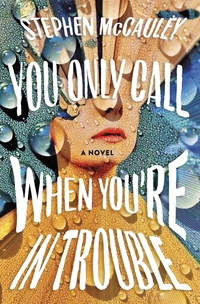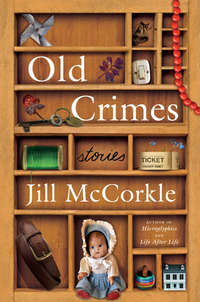Ilium by Lea Carpenter
 Friday, January 12, 2024 at 5:49AM
Friday, January 12, 2024 at 5:49AM 
Published by Knopf on January 16, 2024
Many thrillers, particularly spy novels, attempt a slow build to a startling climax, only to disappoint. Ilium succeeds. While spy novels often depict espionage as a dirty business, few illustrate its big-picture futility as effectively as Ilium.
Edouard and Dasha worked together in Russian intelligence before they entered into a marriage of convenience. Dasha was a widow. She wanted a father for her daughter Nikki and Edouard was happy to have a daughter. In any event, Edouard’s boss told him he needed a wife, so Edouard chose one who happened to be nearby. It was easy for Dasha to say yes. Edouard’s father was one of Russia’s original oligarchs, so Edouard could offer Dasha and Nikki a very comfortable life.
Two weeks after they married, Edouard was in bed with Sophie in Beirut. He promised her a family but neglected to mention Dasha and Nikki. Sophie gave him a son named Felix but suffered a tragic end that sets the story in motion. Edouard worships Felix but Dasha views him as a reminder of Edouard’s infidelity.
Before he became a spy for the Russian government, Edouard had a successful career in the military. Although Edouard is getting old, he is such a successful spy that the CIA, Mossad, and MI6 track his every move. The intelligence agencies are after revenge. Russia may agree that Edouard’s personal vendetta has gone too far.
The central character of Ilium is an unnamed woman from London who tells her part of the story in the first person. In her early years, the narrator was empty and vulnerable, making her the perfect target for recruitment as an intelligence asset. At a party, she met a successful American named Marcus. She was 21 and he was in his early 50s. To her surprise — because she is convinced that she is not special in any way — Marcus married her. The marriage will not last long because Marcus is dying — a fact he chooses not to disclose until after their wedding. When Marcus tells her, he reveals his other life-changing secret.
Marcus wants the narrator to perform a task. Her job is simple: infiltrate and listen. Her cover identity as a fledgling art dealer is a bit more complex. The narrator tackles the job with enthusiasm because she would do anything for Marcus. She’s excited to do anything at all to enliven a life that, before Marcus, was without color or purpose.
Marcus introduces the narrator to a Lebanese man named Raja, a man who — like Marcus — is not what he appears to be. Raja creates a pretext that allows the narrator to visit Edouard’s home in Cap Ferret. Raja only wants her to learn whether Edouard is there. Since he is not, Raja arranges her return on a new pretext. This time she stays for a bit and gets to know the family. Felix, in particular, bonds with her, perhaps because he feels unloved by his stepmother and stepsister. The narrator’s task remains the same: determine whether Edouard is there and, if so, when he will be leaving.
The reader and the narrator will intuit that Raja will use the narrator’s information in a way that will not be good for Edouard. While there is little reason to feel compassion for Edouard (or for his wife and stepdaughter), he is kind to the narrator, perhaps because of her resemblance to Sophie. The reader will likely share the narrator’s fear that Felix’s life is about to be upended.
We learn in the novel’s closing pages that Edouard must be removed from the game because a mistake gave birth to a reprisal that fueled the desire for revenge. The games never end. “All the wars which were really just one war, the targeting and developing of assets, the unending plays for power and redemption, self-loathing gradually obliterated by pride in the mission, good work, ‘the long game’.”
I appreciated the precision of Lea Carpenter’s insightful prose and the elegant style in which the story is told. Here’s an example that merges insight and elegance: “War endures by design. The history of war is a history of romance and mission, of malice slapping the wrist of good intent. The history of war is a history of action, reaction, repeat. War is tragedy, and tragedy, as Aristotle knew, is a game of subtraction, a game of loss.”
The Iliad and The Odyssey provide a recurring backdrop to the story. The narrator has no education beyond high school, but she is exposed to various interpretations of Homer’s epic works as the novel unfolds. Carpenter returns to Homer at the end of the story when she argues that Priam and Achilles provide an example of men who are able to set aside their lust for war and vengeance and discover, through conversation, that they share the experience of loss, that revenge never satisfies. That lesson is ably taught in a novel that goes beyond the cloak-and-dagger trappings of spy novels to explore deeper questions about conflicts between nations and the forces that shape lives.
RECOMMENDED
 TChris |
TChris |  Post a Comment |
Post a Comment |  Lea Carpenter,
Lea Carpenter,  spy in
spy in  Thriller
Thriller 


